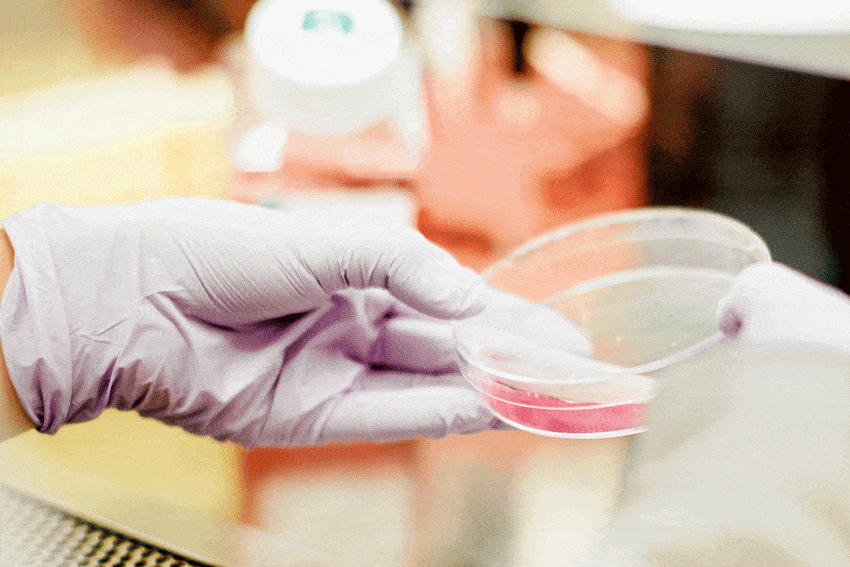
Brutal economic rationale lies behind genetic testing push
I was flicking through The Sunday Telegraph last weekend and came across a piece that was far more disturbing than its page 19 placement and the smiling, happy photographs that accompanied it.
‘All parents should check for mutant genes,’ was the headline, with the sub-heading – a warning in red – reading as follows: ‘how testing system could reveal genetic dangers and prevent life of misery.’
Essentially, the article said that because every person has some form of genetic mutation, experts are recommending that all couples considering having children should undergo genetic screening before attempting to conceive.
“It used to be that a marriage proposal was how a person would indicate they wanted to have children with you. Now it’s a doctor’s appointment.”
This testing, they say, could prevent children with diseases such as cystic fibrosis, thalassaemia (a condition that causes severe, but non-fatal, anaemia), spinal muscle atrophy and many other conditions. They want the blood test that could screen for genetic mutations to be standard care, routinely proposed by GPs to all their patients, not only those who are known to be carriers of genetic diseases.
These tests would be in addition to the blood tests that are currently suggested to screen for chromosomal conditions. The proposal has now become a full-blown research mission, backed to the tune of $20 million by the federal government, to have every couple considering starting a family to first undergo testing to determine whether they should try naturally, or only conceive through IVF.
It’s just so romantic, isn’t it? It used to be that a marriage proposal was how a person would indicate they wanted to have children with you. Now it’s a doctor’s appointment.
The research project is known as Mackenzie’s Mission, named for Mackenzie Casella, who died at the age of seven months from spinal muscular atrophy.

The $20 million invested by the federal government will be used to screen 10,000 couples across Australia for approximately 750 genetic conditions, giving parents information about their likelihood of having a child with any of these conditions or, for those already in the early stages of pregnancy, the likelihood that their child conceived is affected.
If the program is successful, a determination will be made as to whether to roll the tests out nationwide, for free. There are a few problems with genetic screening becoming routine care, not the least of which is its eugenic element.
The sole aim of this type of testing is to screen out children with genetic conditions before they are given a chance at life. The death of Mackenzie is an unspeakable tragedy, and I feel deeply sorry for the loss suffered and, no doubt still experienced by her family. But we need to be clear about something: the mission that bears her name would not have offered a cure or a treatment for her. Instead, it would have ensured that she was not born in the first place.
‘Mackenzie’s Mission’ is ultimately saying that Mackenzie should never have been born.
Another eugenic issue is how quickly this technology can be used to conceive designer babies.

Mackenzie’s Mission aims to test around 1300 genes for risk of any condition “where an ‘average’ couple would take steps to prevent the birth of a child with that condition.” This does not only include fatal conditions, but those “with significant negative impact on quality of life for the child” or those with “a significant impact on the family.”
The “quality of life” language is always troubling, because it always involves someone else deciding whether a person’s life is worth living. Instead of euthanasia, where doctors decide who would be better off dead, doctors doing genetic screening decide which of their embryonic patients should never be born.
There are other problems as well, and one is the dishonesty of the whole thing. While Mackenzie’s Mission is marketed as being about what is best for parents and children, there is a brutal, economic motive that sits behind it.
The Sunday Telegraph article stated that the Mackenzie’s Mission research project is the first of its kind to look at the “cost-effectiveness of widespread screening.” This is supported by the study details, which confirm that part of the research will include the “costs per affected pregnancy identified” and the “average cost in Australian dollars of taking reproductive measures to avoid having an affected live birth (eg pre-implantation genetic diagnosis, prenatal diagnosis, termination etc.)”
In other words, the research will determine whether offering free genetic screening to all Australians is cheaper than caring for Australian children born with genetic diseases.
I can tell you another set of sums that will surely be done, even if not “officially” by the government or those running the studies. Somewhere, there are heavyweights in the IVF industry calculating exactly how much more money they can make not only from infertile couples, but now also from fertile couples who will nonetheless decide to conceive via IVF so that they don’t run the risk of having a baby with a genetic illness.
Related:
